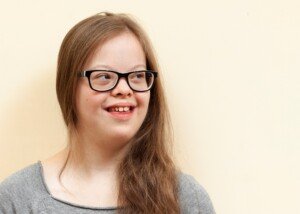Political correctness has leapt overboard with “developmental delay.”
People are scared to just NAME the specific diagnosed condition and instead fall back on “He’s developmentally delayed.”
Many years ago, developmental delay was never used.
But at some point along the soaring trajectory of PC, it became the standard term in educational, medical and social contexts.
It primarily refers to kids who do not reach developmental milestones at the expected times. It’s also been used on adults.
However, there is a growing consensus among professionals and advocates that this term is outdated and misleading.
In March 2022 I was diagnosed with a condition that falls under the very broad category of “developmental delay.” I’m autistic.
I’ll be damned if I’ll ever agree to being called developmentally delayed.
Inaccuracy and Misleading Implications
Developmentally delayed implies that children are simply late in their development and that they’ll eventually catch up to their peers! For certain conditions, this is anything but truth.
While this may be true for some conditions, it’s not the case for all, even though this very PC term is typically used to refer to a child, teen or adult with lifelong conditions such as Down syndrome or other genetic forms of intellectual disability such as Angelman syndrome and Williams syndrome; intellectual disability without a genetic cause; and autism.
The term can create false hope for parents and caregivers, leading to unrealistic expectations and potential disappointment when the child does not “catch up” as anticipated.
Certainly, we all want disabled individuals to reach their maximum potential, and it’s crucial that parents and teachers encourage them to reach for the stars.
But at the same time … expectations need to be reasonable and attainable.
Negative Connotations and Stigmatization
Language shapes our perceptions and attitudes. “Rosie has a developmental delay” can carry negative connotations, implying that the child is “behind” or “less than” their peers.
This can contribute to stigmatization and discrimination, both from peers and from society.
Kids or adults who are labeled as having a developmental delay may be treated differently, face lower expectations and experience social isolation.
Though previous information here mentioned unrealistic expectations as a possible outcome of the outdated label, it can also launch just the opposite: low expectations!
Lack of Specificity
“Developmental delay” is a broad term that lacks specificity. It does not provide any information about the nature or cause of the individual’s difficulties.
The PC term is frequently used in the TV show, “Good to Know,” which often includes segments on people with various disabilities.
As a viewer, I want to know what John’s specific condition is when it’s not possible to know this via his physical appearance alone.
For example, Down syndrome is obvious in appearance, but someeone with autism spectrum disorder would not have a physical “look” to this condition, thus leaving the viewer wondering what exactly the developmental delay actually is.
Another example is Angelman syndrome. Though this comes with characteristic facial features and gait, few viewers will know what’s behind this.
A mention of “John has Angelman syndrome” should be given — if for no other reason, some viewers would invariably look this up and learn more about this rare genetic condition.
- Saying John is “developmentally delayed” tells viewers absolutely nothing.
Are the segment writers afraid they’ll get backlash if they reveal that John has mild cerebral palsy and an intellectual disability?
The generic term can be problematic for both diagnosis and intervention.
Without a clear understanding of the child’s specific needs, it’s tricky to develop effective support plans and interventions.
More precise language can help ensure that children (and adults) receive the appropriate resources and support tailored to their unique circumstances.
Similar Example to Developmental Delay
Synonymous terms include global delay.
I was once watching a show about inspirational animal stories. A segment profiled a girl of about eight whose mother said, “She has a global delay.”
I was like, “Come ON, just SAY the condition: Angelman syndrome!”
She never did. Nor did the narrator. So how did I know the child had Angelman syndrome?
Because I can easily spot the distinct facial features, plus the telltale signs involving the teeth.
The child was also nonverbal and had the impaired gait – two classic features of this disorder.
But just how many viewers would already know all this?
Here was an opportunity for “Good to Know” to ignite some interest in Angelman syndrome — and it was blown.
“Global delay” was grossly misleading in this case. Yes, there was a global problem, but “delay” implies that the little girl will eventually catch up globally, too!

Google search result
Specific Diagnoses
Whenever possible, using specific diagnoses or descriptive terms can be more helpful than the vague label of developmental delay.
For example, if a child has autism, it’s more informative to use that diagnosis rather than a general term.
Specific diagnoses provide clearer guidance for interventions and support strategies.
A specific diagnosis is also educational to people viewing a program profiling the individual or reading about them online or in print.
What about the majority of “Good to Know” viewers who were very curious about exactly what the young girl had?
Wouldn’t the mother want more people to know about Angelman syndrome?
Education and Training
To make this shift in language, it’s essential to educate and train professionals, parents, caregivers and teachers.
This can be done through workshops, seminars and educational materials that press upon the importance of using accurate and compassionate language.
Using “developmental delay” almost seems as though the parent feels shame that their child is different – even though that may not be the case at all.
It’s like they’re trying to hide something, which will work against the promotion of awareness and acceptance.
But this PC phenomenon has also infiltrated the media.
How many times have you heard some form of media refer to disabled kids, teens or adults as having a “developmental delay” without any subsequent specifics? I know I’ve witnessed it tons of times.
Conclusion
Retiring the term “developmental delay” in favor of more accurate and non-misleading language is a crucial step toward motivating people to be more understanding, and certainly, more knowledgeable of the rare conditions that can affect the human body.
Just say the diagnosis. Show the world you have no shame or fear, whether you’re a parent, teacher, script writer for an inspirational TV show or YouTube video, or what-have-you.
Be straightforward and upfront. This will contribute enormously to helping the masses of people become familiar with various conditions – which can eventually lead to some of those people becoming involved in awareness or acceptance campaigns.
 Lorra Garrick has been covering medical and fitness topics for many years, having written thousands of articles for print magazines and websites, including as a ghostwriter. She’s also a former ACE-certified personal trainer. In 2022 she received a diagnosis of Level 1 Autism Spectrum Disorder and subsequently has developed an intense interest in ASD.
Lorra Garrick has been covering medical and fitness topics for many years, having written thousands of articles for print magazines and websites, including as a ghostwriter. She’s also a former ACE-certified personal trainer. In 2022 she received a diagnosis of Level 1 Autism Spectrum Disorder and subsequently has developed an intense interest in ASD.
.










































